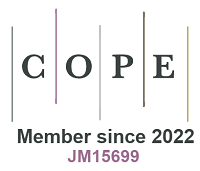Research Article | Open Access
Engineering boron-terminated defects in carbon-doped boron nitride catalysts for enhanced activity in oxidative dehydrogenation of propane
Views: 67
Chem. Synth. 2025;5:[Accepted].
Author Information
Article Notes
Cite This Article
Abstract
Carbon-doped boron nitride (CBN) materials are a novel class of non-metallic catalysts with significant potential in catalyzing the oxidative dehydrogenation of propane (ODHP) process. ZIF-8 is a type of metal-organic framework (MOF) material featuring a zeolitic imidazolate framework (ZIF) skeleton. Boron nitride materials derived from ZIF-8 inherit its advantages, including customizable structure, tunable mesoporous properties and high specific surface area. The present work has developed a novel synthetic method to introduce and engineer the B-terminated defect in CBN-Zx through the co-pyrolysis of ZIF-8 and other typical precursors containing boron and nitrogen. The unique role of ZIF-8 precursor was to produce mesopores in CBN-Zx, which contained plenty of B-terminated defects formed via the volatilization of Zn and the elimination of C and N species during the pyrolysis process, and these defects could transform into active BOx species, which enhanced the ODHP activity. The optimized CBN-Z0.4 catalyst exhibited high propane conversion at 23.9% in ODHP with the olefin selectivity at 86.1%, which had reached the best level among boron-based catalysts in ODHP. The present work not only provides a new idea for synthesizing highly efficient boron-based catalysts for ODHP reactions, but also sheds light on the structure-function relations, rational design and practical applications of CBN catalysts for ODHP reactions.
Keywords
Carbon-doped boron nitride, oxidative dehydrogenation of propane, ZIF-8 precursors, boron-terminated defects, BOx active species
Cite This Article
Sun G, Dai X, Zeng X, Bai Y, Gao Z, Qi W. Engineering boron-terminated defects in carbon-doped boron nitride catalysts for enhanced activity in oxidative dehydrogenation of propane. Chem. Synth. 2025;5:[Accept]. http://dx.doi.org/10.20517/cs.2024.75
Copyright
© The Author(s) 2025. Open Access This article is licensed under a Creative Commons Attribution 4.0 International License (https://creativecommons.org/licenses/by/4.0/), which permits unrestricted use, sharing, adaptation, distribution and reproduction in any medium or format, for any purpose, even commercially, as long as you give appropriate credit to the original author(s) and the source, provide a link to the Creative Commons license, and indicate if changes were made.












